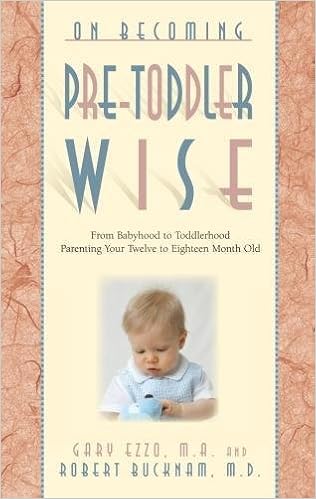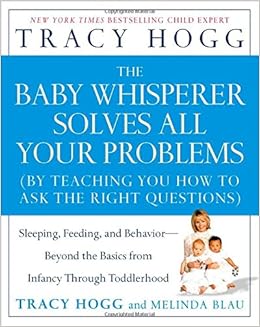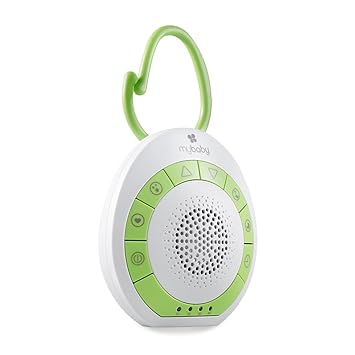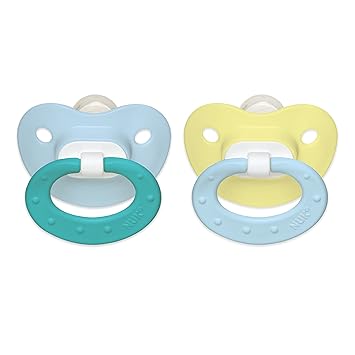Infant Sleep Guide: Helping Your Baby Sleep
I was very, very honored with our pediatrician’s office asked me a few years ago to write up both a newborn sleep guide as well as one for infants.
I’ve previously blogged about the newborn baby sleep guide and you can read it here!
Today I wanted to share the infant version of my newborn sleep guide 🙂
My goal in this guide was to give parents a simple, straight forward way to help establish good sleep habits for their babies.

Of course, I always recommend reading Babywise to everyone I meet, but sometimes people are more likely to read a short hand out from their pediatrician than they are an entire book recommended to them by a stranger!
Ready to Sleep Train? Be Sure to Pick Up My Favorite Sleep Books:
Whether your baby is a few weeks old, a month old, or several months old both you and they will benefit from the advice in this post!
The following suggestions will help your baby establish good sleep habits. Here is my personal baby sleep guide!
Most babies who follow these guidelines begin sleeping solidly for 7-8 hours a night at around 8-12 weeks old.
The ideal age to begin these techniques with 2-3 week old baby but they are effective even when started with older infants.
The older the child is when starting, the longer it may take to see results.
Sleep is crucial for child development and it is important to be mindful to follow all the safe sleep recommendations to prevent sudden infant death syndrome.
—–> You Can Read SIDS Prevention Tips You May Not Know About Here
Also it’s important to make sure you’re prepared for sleep training by having all the best items to encourage your baby to sleep!
Shop My Must– Have Sleep Items Here:
Establish a Time to Begin the Day:
Each day for your baby needs to begin at the same time.
If your baby wakes prior to this time you feed, put back to bed, then re-wake them at your start time and feed again.
If your baby is still asleep at this time, you wake them to start the day.
The rest of the day flows from your start time each morning so it is crucial in establishing
Create a Schedule:
At 2 weeks old most babies need to be eating every 2.5 – 3 hours.
Once you establish a start time for your day you can create a schedule from there.
For example, if your baby starts the day at 7 am then you would feed again at 9:30 if you are doing a 2.5-hour schedule or at 10:00 if you are doing a 3 hour one.
Your schedule is a 30-minute window.
It’s totally fine to feed the baby 15 min early or to allow them to sleep an extra 15 min after the feeding time too.
Want More Details on Getting Started With Sleep Training? Be Sure to Read These Posts:
Focus on Full Feedings:
Most newborns stop being as sleepy during feedings once they reach a few weeks old, but continue to focus on making sure your baby has a full feeding each time.
A full belly allows
You
Feed if Hungry:
Although you have a schedule in place if your baby seems hungry and it’s not yet time to eat then feed them!
Never ignore a hungry baby!
Depending on when you have to feed you can adjust the schedule accordingly for the rest of that
day.
While you always want to feed a hungry baby you also want to look for the reason WHY the baby may have been hungry before the next scheduled feeding time.
Did baby fall asleep during
Try to find out the reason behind the hunger and work on fixing the issue to avoid more frequent feedings becoming the “norm” which creates a cycle of “snacking” and limits the ability
for solid sleep.
Want Babywise Encourage ment and Tips Directly in your In-Box? Sign Up for My Exclusive Series:
Eat-Wake-Sleep Cycle:
As soon as you get your baby up from sleeping, you feed them.
After the baby finishes eating then you want to make sure to have some awake time with them.
Tummy time, diaper changing, cuddling and cooing: all of these are fun things to do during that awake time!
—–> Wondering How to Fill the Wake Time Slot? Read This Post!
Know Awake Time Lengths:
Babies cannot handle staying awake for very long periods of time.
A young infant typically will be awake for a total of an hour or less at a time.
And that includes the length of time it takes for them to eat!
Let’s say your baby gets up for the day at 7:00, this means it will be time for them to go down for
As you learn your baby you will learn how long of an awake time they can handle and the older they get, the longer they will be able to stay awake.
Read this post by Chronicles of a Babywise Mom for the Optimal Waketime Lengths
Watch for Sleep Cues:
Every baby has a different way of showing that they are tired.
Rubbing eyes, yawning, getting fussy or even becoming stiff.
Watch for these cues and when you notice them happening put your baby to sleep
immediately.
Then the next awake time
Once a baby shows sleep cues it often indicates that they have already been awake
for too long.

Avoid Overstimulation:
The most common reason that babies struggle to sleep is that they are over-stimulated.
If your baby has a hard time falling asleep at the beginning of their nap then it means they were awake for too long prior to the nap.
Cut their awake time shorter and it should help them go to sleep easier! Sleep problems arise when a baby isn’t given the opportunity to sleep when they need it!
Establish a Good Sleep Ritual:
Try to make sure that wherever your baby sleeps that it is a dark room, with dark curtains and a white noise maker (a box fan is a great, inexpensive option!).
Having a routine for sleep times allows your baby to understand when it’s time to go to sleep.
A great routine is to sing a song with your baby and swaddle the baby for sleep.
Always have your baby sleep in a crib or basinet in a room away from the noises of the rest of the house.
Put to Bed Awake:
A big step in helping your baby sleep is allowing them to learn to self-soothe.
You want to lay the baby down for naps drowsy but still awake.
This allows them to fall asleep on their own without your help.
As you learn more about baby and their individual personality you will quickly become aware of their sleepy signs and know that delicate window of when to lay them down before they are too tired but while they are in the ready-to-sleep mode.
Remain Consistent:
The more consistent you can be with sleep location, sleep times, and eating times the easier it is for the baby to learn to sleep.
We all thrive on routine and babies are no different.
Staying at home as much as possible allows your baby to adapt to the routine you have put in place.
Even when it gets hard or frustrating, stay consistent! It will pay off!
Comfort for Early Waking:
If your baby wakes early from their nap, comfort them!
It’s common for young babies to need help transitioning into a deeper sleep.
means that nap time is over.
The baby is most likely just transitioning into that deep sleep and may need some help to make it happen.
This article goes into detail on how to handle early waking with babies at various ages.
Crying is Okay:
It’s okay for your baby to cry a little when first going down to sleep or even when waking mid-nap.
Letting them fuss for a few minutes (up to 15-20 min if you are comfortable with that) gives them a chance to soothe themselves and put themselves back to sleep on their own.
It allows them to get to that deeper sleep sooner and without help.
—–> Here’s What You Need to Know When Starting to Sleep Train in Regards to Letting Your Baby Cry.

Know the Wonder Weeks:
Wonder weeks are certain times in your babies life where they go through mental and developmental leaps.
There is a wonderful app to help you recognize when these times are occurring for your baby.
During wonder weeks it’s common for sleep disruptions and sleep regressions to occur and knowing when they are happening can help prepare you for them as well as help you to cope during them.
—–> Read My Post about The Wonder Weeks here!
Cluster Feed:
Babies are often fussier in the evenings and it’s also a time when most nursing mothers see a dip in their supply.
When you establish your schedule it’s wise to put less time in-between feedings in the evenings.
For example, if you are doing a 3
By doing a few feedings closer together in the evening time you are also helping your baby “tank up” which can help them sleep throughout the night time hours.
Establish Bedtime Ritual:
Just as you want to have a sleep routine for each nap and nighttime sleep, you also want a specific bedtime routine to help your baby learn that it’s time to sleep for the night.
Have a bath, read a story, say prayers, etc.
When you set up your schedule your baby’s bedtime feeding should be somewhere between 6:00-8:00 PM.
—–> Want Your Baby Sleeping Through the Night? Be Sure to Read THIS Post!
Last Feeding then Straight to Sleep:
During the day you want to keep the
Wake your baby from their last nap and then do a little awake time with them.
This is when you do your bath and other bedtime rituals.
Once the baby is all ready for bed, then do their feeding.
When they finish this feeding put them straight to bed (hopefully already asleep!).
Dream Feed:
A dream feed is an extra feeding you schedule for your baby after they are already asleep.
You want to do this feeding before midnight and the goal is to keep your baby asleep while you feed them.
Put the baby straight back to bed following this feeding and have as little disruptions as possible.
Keep the lights low and speak in whispers, etc.
Don’t Wake to Eat at Night:
During the day you want to wake your baby when it’s time to eat.
However, after the dream feed, you just cross your fingers and go to sleep!
Night sleep is different from day sleep. As long as your baby is gaining weight and your milk supply is well established, you can LET THEM SLEEP!
When your baby wakes in the night, feed them.
Again keeping lights low and doing your best to keep them in a sleep-like state.
If you are nursing and are worried about your supply you can set an alarm to wake your baby up if they haven’t woken you up yet.
Typically nursing mothers set alarms and wake the baby in the night to eat 4 hours after the last feeding at least until milk supply is well established.
—–> Here’s How to Drop The Last Middle of the Night Feeding

Start as you Mean to Go On:
The early days of sleep training can be hard, but stay focused on your long-term goals.
Think about your goals
Sleep training is a parent-directed technique.
You, as the parent, decide when your baby eats and sleeps. Not only will your baby benefit from sleep but you will as well!
—–> Here’s a Great Post on What “Start as You Mean to go on” Means
Relax:
Being a new parent is a learning experience.
Babies are all different and it takes time to learn your baby and understand all of their specific, unique needs.
Sleep training can be difficult at times. All babies sleep but may have their own unique spin on how they adjust to scheduling and may need certain areas tweaked and modified to allow for the individual sleep patterns.
It’s great to have a good friend to talk things through with and it’s helpful to have books, blogs, and even social media groups to use as resources.
You’re not alone in this and it will get easier!
In implementing these sleep tips you will soon see all the great benefits of having a baby who sleeps through the night!!!
In fact, following these strategies will even help YOU be a better, happier MOM!
- A Letter to my Son on His 16th Birthday From Mom (Kye’s Bday Letter) - March 20, 2025
- Open Letter to my Daughter on her 12th Birthday – Love, Mom {Britt’s 12th Bday Letter} - January 16, 2025
- Letter to My Son on his 6th Birthday – Love Mom - January 8, 2025































